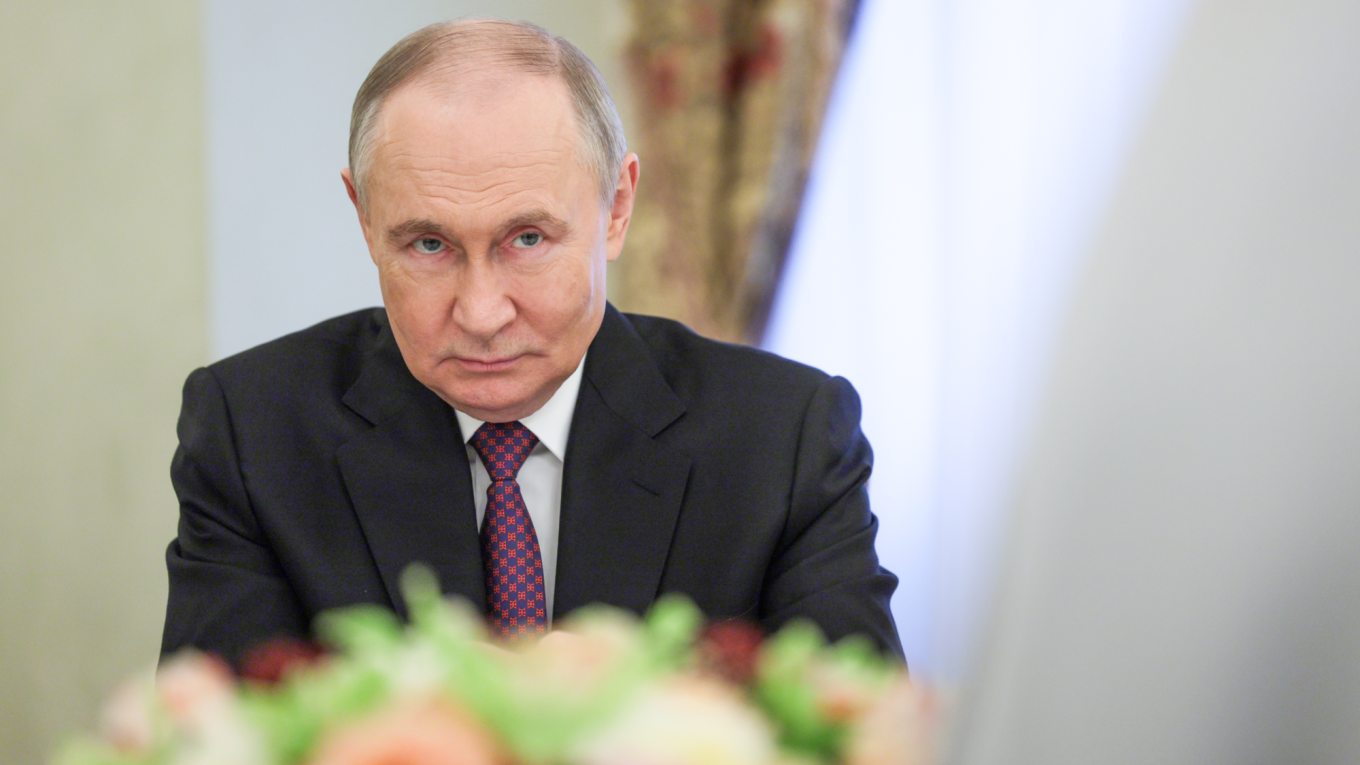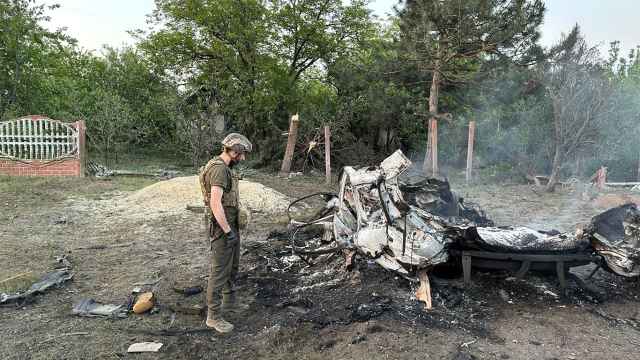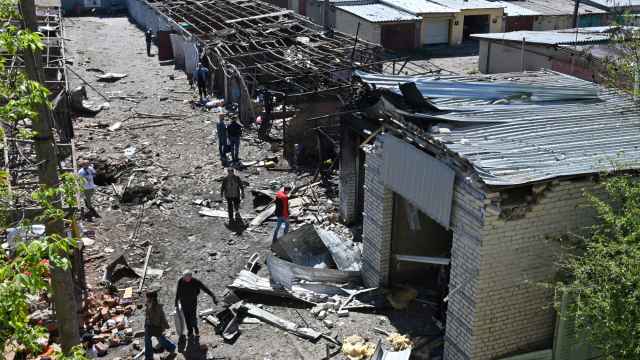Russian President Vladimir Putin has offered to end the war in Ukraine along the current front lines as part of peace talks with the United States, the Financial Times reported Tuesday, citing multiple sources familiar with the negotiations.
During a meeting in St. Petersburg earlier this month, Putin reportedly told U.S. President Donald Trump’s special envoy Steve Witkoff that Moscow could drop its claims to parts of four Ukrainian regions still controlled by Kyiv.
Washington has floated its own proposals for ending the conflict, including recognizing Russia’s 2014 annexation of Crimea and acknowledging its de facto control over occupied areas in Ukraine’s east and south, FT reported.
The Kremlin’s offer marks the first sign in three years that Moscow might walk back its maximalist war aims, though European officials who spoke to the newspaper warned the move could be a ploy to pressure Trump into making broader concessions.
“There is a lot of pressure on Kyiv right now to give up on things so Trump can claim victory,” FT quoted one European official as saying.
In exchange for a ceasefire, Ukraine would reportedly commit to halting efforts to reclaim occupied territory through military means, while Russia would pause its current offensive operations.
Sources cited by FT said Putin may be willing to retreat from his earlier demand for full control over all four contested regions, provided Washington agrees to more significant concessions. These include formal recognition of Russia’s control over Crimea and assurances that Ukraine will not join NATO.
Later on Tuesday, Kremlin spokesman Dmitry Peskov dismissed the FT report.
“There are a lot of fakes being published now, including by respected publications, so you should only listen to the original sources,” Peskov told the state-run RIA Novosti news agency.
Ukrainian, U.S. and European officials are due to meet in London on Wednesday to discuss the proposals. Ukrainian President Volodymyr Zelensky said Kyiv had not received a formal offer from Trump’s team, but would respond if one came.
According to anonymous Ukrainian officials who spoke to FT, Kyiv is open to some of the ideas proposed by the Trump administration, though they did not specify which ideas. Among other things, the U.S. has suggested deploying a European peacekeeping force in Ukraine to monitor a ceasefire along a proposed demilitarized zone.
On Sunday, Trump expressed hopes that Russia and Ukraine would agree to a peace deal in the coming week. In response, Peskov said he did not want to talk “about the time frame” for a potential ceasefire deal, but emphasized that “President Putin and the Russian side remain open to the search for a peaceful settlement.”
Putin aide Yuri Ushakov told Russian media on Tuesday that Witkoff will visit Russia later this week, though he did not specify what day he would arrive, nor did he say whether the Trump envoy would meet with Putin.
Some have suggested that the Kremlin leader is stalling ceasefire negotiations until Russian forces completely regain control of the southwestern Kursk region, where Ukrainian forces launched a surprise incursion last August. By many accounts, Kyiv had sought to use Ukrainian-occupied parts of the border region as a bargaining chip in peace talks.
Russia’s Chief of the General Staff Valery Gerasimov told Putin on Saturday that 99.5% of the Kursk region had been “liberated,” with Russian forces continuing counteroffensive operations to clear the border region of Ukrainian forces.
Konstantin Remchukov, the editor of the Kremlin-aligned Nezavisimaya Gazeta newspaper, wrote Sunday that Putin was “obviously” seeking the full liberation of the Kursk region before agreeing to a U.S.-brokered ceasefire to avoid negotiating an exchange of territory.
“As soon as the last 0.5% is liberated, then the troops can stop where this news finds them,” said Remchukov, who is widely believed to have high-placed sources in the Russian government.
A Message from The Moscow Times:
Dear readers,
We are facing unprecedented challenges. Russia's Prosecutor General's Office has designated The Moscow Times as an "undesirable" organization, criminalizing our work and putting our staff at risk of prosecution. This follows our earlier unjust labeling as a "foreign agent."
These actions are direct attempts to silence independent journalism in Russia. The authorities claim our work "discredits the decisions of the Russian leadership." We see things differently: we strive to provide accurate, unbiased reporting on Russia.
We, the journalists of The Moscow Times, refuse to be silenced. But to continue our work, we need your help.
Your support, no matter how small, makes a world of difference. If you can, please support us monthly starting from just $2. It's quick to set up, and every contribution makes a significant impact.
By supporting The Moscow Times, you're defending open, independent journalism in the face of repression. Thank you for standing with us.
Remind me later.






